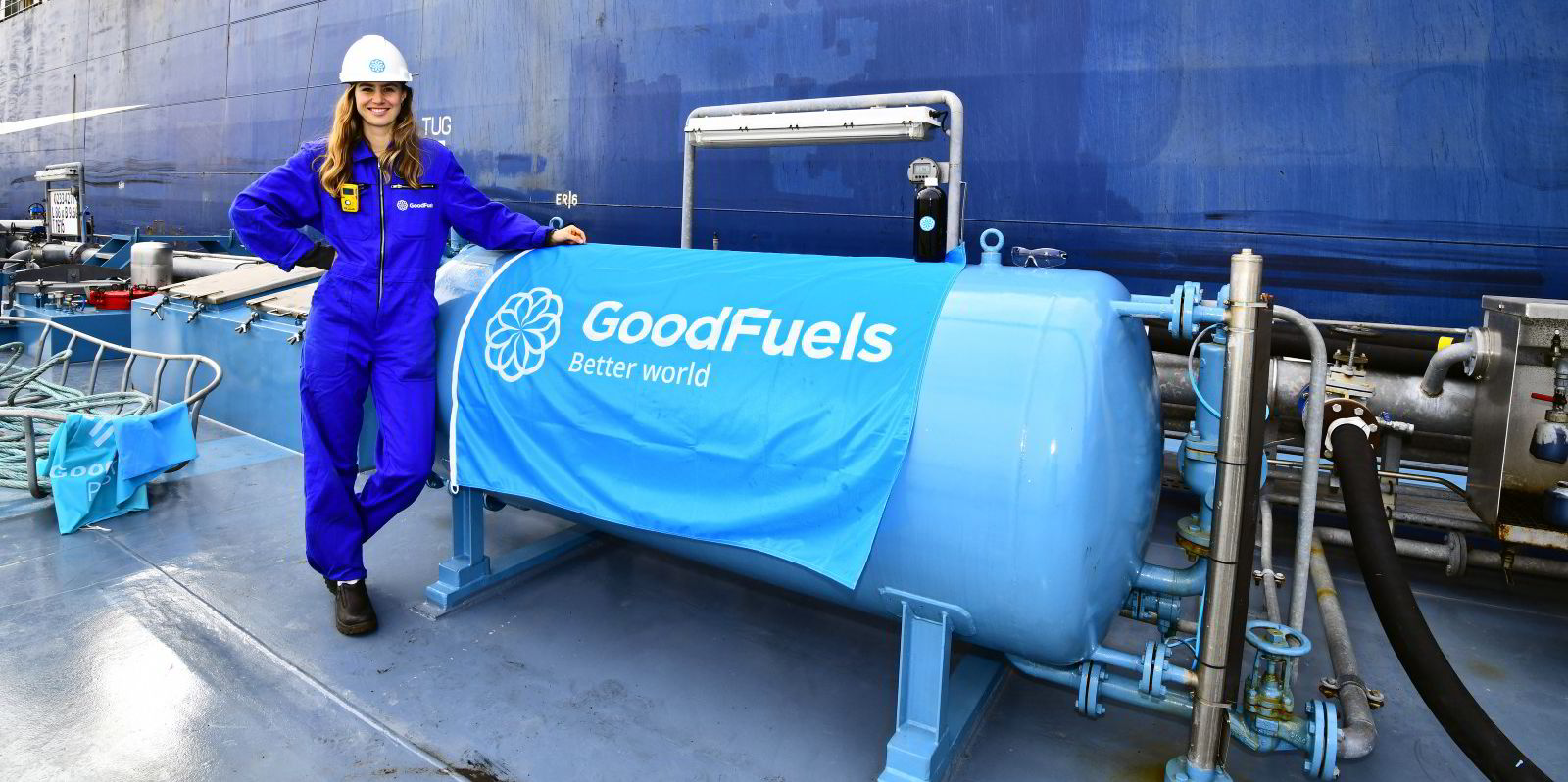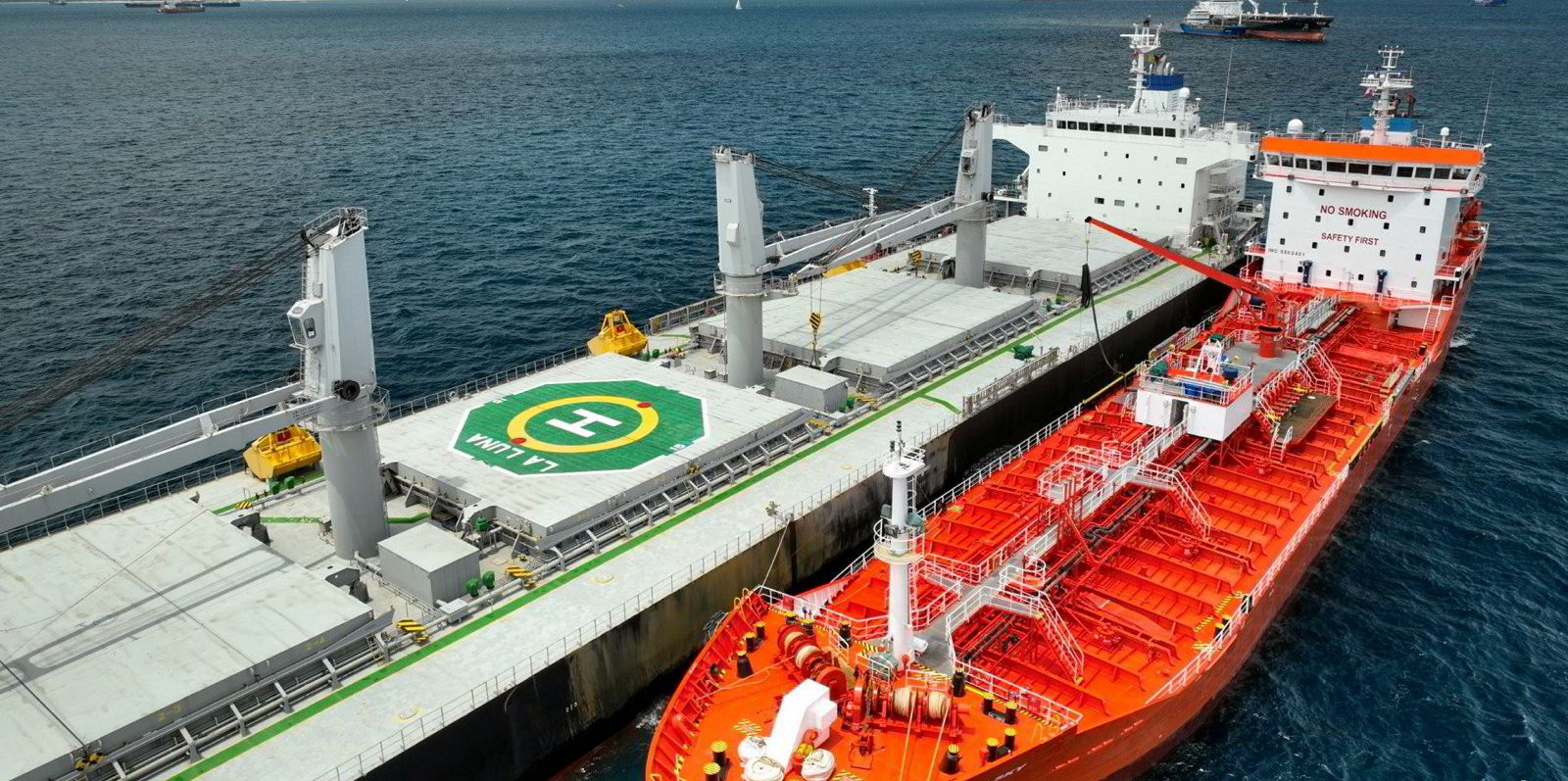Shipowners can now include the benefits of biofuels in reducing greenhouse gas emissions in their Carbon Intensity Indicator (CII) assessment.
An International Maritime Organization circular issued last week assigns a CO2 emission conversion factor to biofuels as long as they are certified under a recognised international scheme and achieve a well-to-wake reduction in greenhouse gas emissions of at least 65%, compared to fossil fuel oil.
The new guidelines will come into effect from October 2023 and will also apply to the IMO’s Data Collection System, in which shipowners report fuel consumption to the regulator.
The move fixes a major omission in the CII regulation and will help shipowners improve their CII rating — an assessment of ship fuel efficiency — by switching to biofuels.
Until last week, there was no commonly accepted way of calculating the use of biofuels in reducing greenhouse gases in the CII assessment.
While efficiency technology has a direct impact on improving fuel efficiency and emissions, the use of biofuels in reducing greenhouse gases had not been accounted for in the CII rating system.
The importance of biofuels in helping shipowners meet the IMO’s goal of a 20% reduction in greenhouse gas emissions by 2030 was demonstrated in an online poll run by classification society DNV.
In the poll, 51% of respondents said the use of carbon neutral fuels, including biofuels, would be the most effective way of achieving the IMO’s upcoming decarbonisation target.
“This (survey) is about what we will do now and fuel is the most obvious choice,” said DNV’s director of environment Eirik Nyhus.
Nyhus added there could now be an impact on the price of biofuel. “We do not know what will happen to the biofuel market when demand surges,” he said.
The circular will be used as a temporary measure until the CII regulation is updated by the IMO in 2026.
At that time, it is likely that the IMO’s guidelines on the lifecycle greenhouse gas intensity of marine fuels — which are under development to assess marine fuels on a well-to-wake basis — will be applied.

However, there has been no agreement so far if carbon capture and storage can be used in the CII assessment.
When the CII is updated it is likely to move from being a tank-to-wake to a well-to-wake assessment.
There is a question mark over whether the CII regulation is still relevant now that the IMO is aiming towards a 70% reduction in greenhouse gas emissions by 2040.
Nyhus said he believes the IMO will seek to upgrade the regulation. “There will be growing political pressure to enhance CII going into 2025,” he added.




